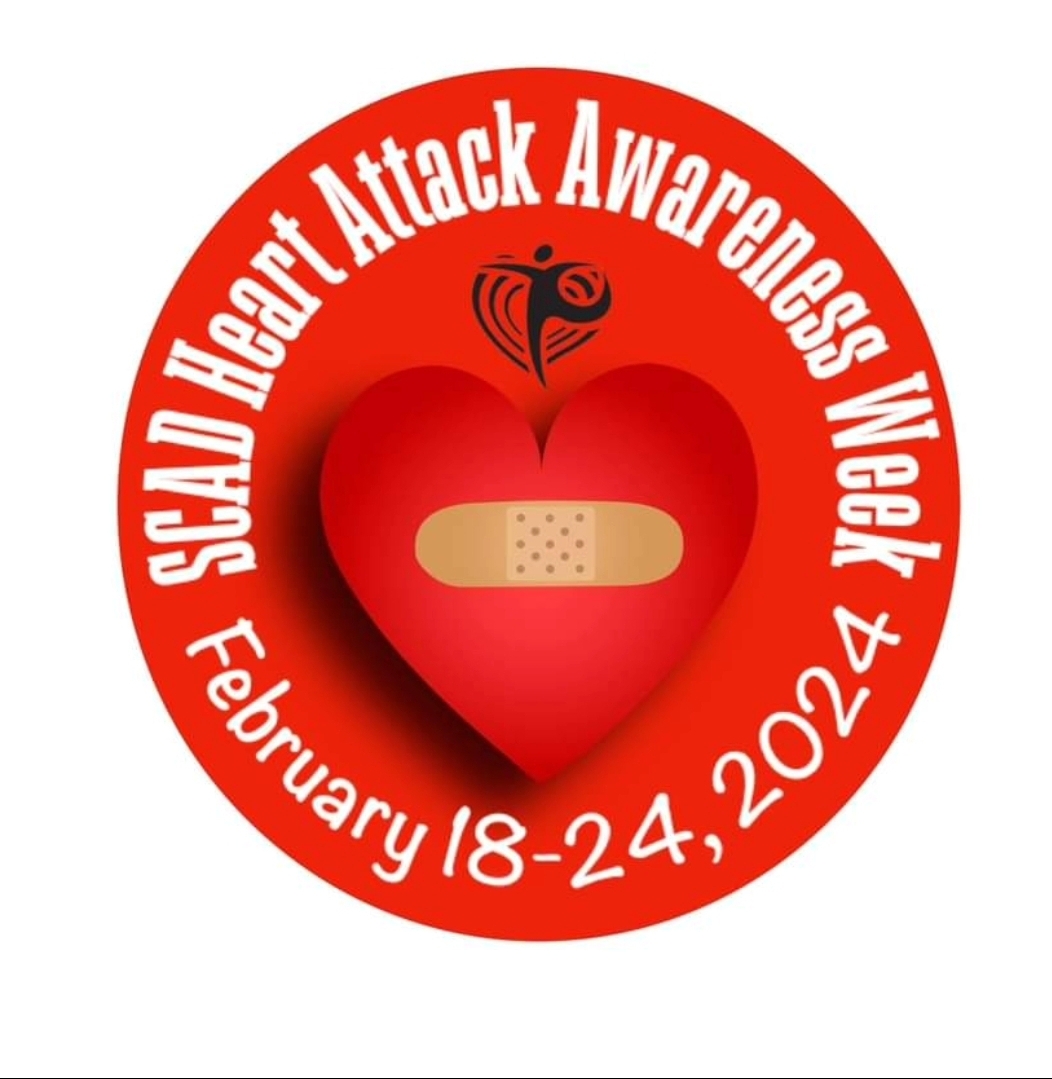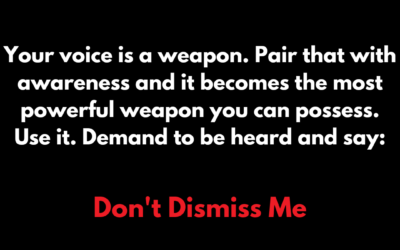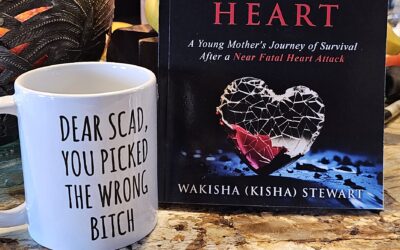As I sit down to write this blog post, I can’t help but reflect on the whirlwind journey that led me to this moment. I am a SCAD heart attack survivor. This week holds particular significance for me and many others like me, as it marks SCAD Awareness Week. SCAD, or Spontaneous Coronary Artery Dissection, is a rare and often misunderstood condition that can have life-altering consequences. My own experience with SCAD has taught me the importance of recognizing the signs and symptoms of heart attacks, especially in women.
Like many women, my SCAD happened 2 weeks after giving birth. It was an ordinary day and that evening myself and my partner were going to a dinner party at a friend’s house. I was fatigued and a little disoriented but continued to engage in conversation when suddenly, I felt an intense pressure in my chest. It was unlike anything I had ever experienced before. Ignoring it was not an option, and I sought medical help immediately. Little did I know that this decision would ultimately save my life.
Upon arriving at the hospital I was initially dismissed but insisted I needed to be seen. A nurse looked at me for 2 seconds and could immediately recognize that I was having a heart attack. I was rushed to another hospital and I was diagnosed with SCAD. My world was turned upside down in an instant. I had so many questions, yet so few answers. What had caused this? Could it happen again? The uncertainty was overwhelming, but through it all, I remained determined to not let SCAD define me.
In the days, weeks, months, and years that followed, I embarked on a journey of recovery and self-discovery. I learned to listen to my body in ways I never had before. I became acutely aware of the importance of self-care and advocating for my own health. But perhaps most importantly, I became an advocate for SCAD awareness.
One of the most striking aspects of my experience with SCAD is how it has shed light on the unique ways in which heart attacks can manifest in women. Traditionally, heart attacks have been associated with chest pain in men. However, research has shown that women often experience different, and sometimes subtler, symptoms. These can include shortness of breath, nausea, dizziness, and fatigue. In which I had all of. Knowing these signs and symptoms can quite literally mean the difference between life and death.
As SCAD Awareness Week unfolds, I am reminded of the importance of spreading knowledge and raising awareness about this often misunderstood condition. By sharing my story, I hope to inspire others to listen to their bodies, advocate for their health, and never underestimate the power of awareness.
To my fellow SCAD survivors, and to anyone who has been impacted by heart disease in any form, know that you are not alone. Together, we can raise our voices, share our stories, and work towards a future where SCAD is not just understood, but prevented and ultimately conquered.
So here’s to SCAD Awareness Week, and to the countless survivors whose strength and resilience inspire us all. May we continue to shine a light on this important cause, and may we never stop fighting for a world where heart health is a priority for all.






0 Comments